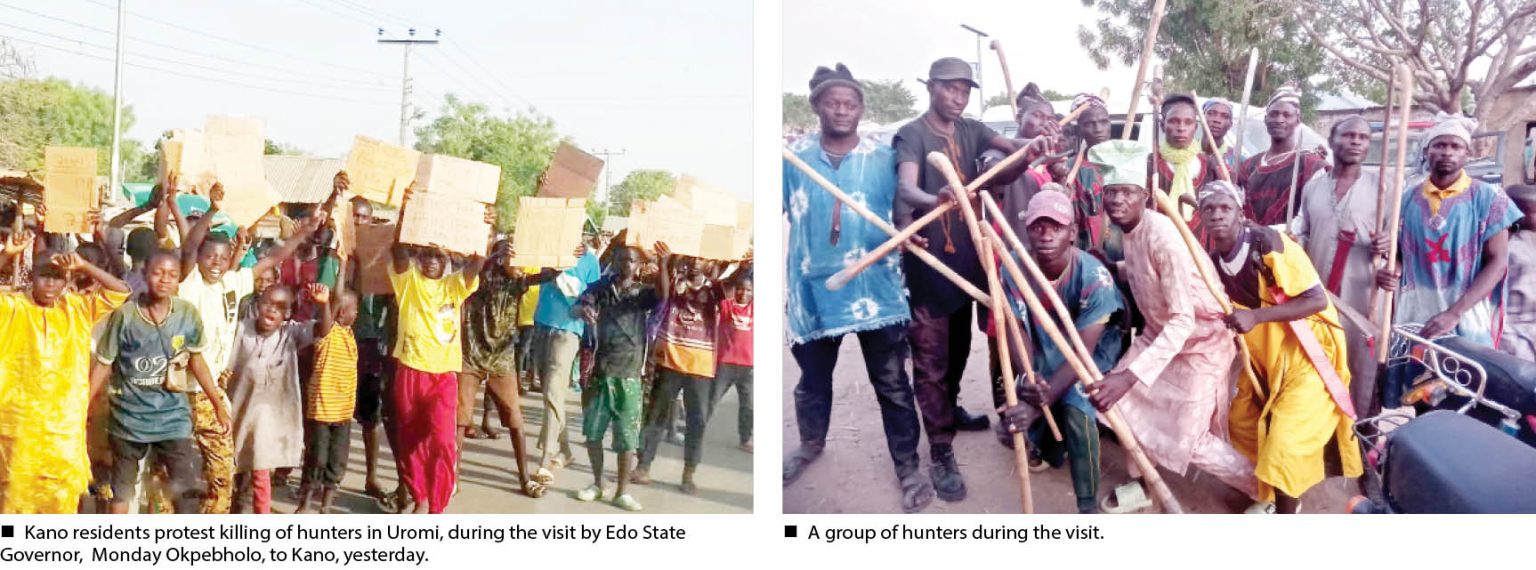The lynching of 16 individuals in Uromi, Edo State, was not an isolated act of mob violence—it was the result of a deepening security crisis in Nigeria. As kidnappings and banditry worsen, communities have become increasingly distrustful, sometimes resorting to extrajudicial killings.
The Edo State government swiftly condemned the attack and suspended key security officials, while northern leaders demanded justice. But beyond the immediate responses, this tragedy exposes deeper issues—ethnic profiling, a failing justice system, and the unchecked rise of vigilante groups. Unless these problems are addressed, similar incidents will continue.
Reports indicate that the victims, allegedly from northern Nigeria, were traveling through Uromi when they were stopped by local security personnel. A search revealed homemade weapons, triggering suspicions that they were kidnappers. Before authorities could determine the truth, an angry mob formed and executed them in a brutal act of jungle justice.
Disturbing videos of the killings spread on social media, sparking national outrage. Governor Monday Okpebholo denounced the attack as “barbaric” and ordered an investigation. He suspended the commander of the Edo State Security Network and disbanded unauthorized vigilante groups in response.
The Fear of Kidnapping and Banditry
Nigeria has become a hotspot for violent crime, with kidnapping for ransom escalating at an alarming rate. Highways and rural areas are especially vulnerable, as criminal gangs abduct travelers for money. Some of these groups, operating from the forests of northern and central Nigeria, have been linked to Fulani herders, fueling widespread fear and ethnic profiling.
In Edo and other southern states, locals have grown increasingly wary of northern travelers, often suspecting them of criminal activity. This paranoia played a key role in the Uromi killings—the mere presence of weapons was enough to condemn the victims without trial.
A Broken Justice System and the Rise of Vigilantes
Years of corruption and inefficiency have eroded public trust in law enforcement. Many Nigerians believe that criminals, if arrested, will bribe their way to freedom. This frustration has led to the rise of vigilante groups, which, while helping combat crime, often operate outside the law.
The Edo State Security Network, which was involved in stopping the victims, has come under scrutiny for potentially mishandling the situation. Governor Okpebholo’s decision to suspend its leader suggests that the security corps may have played a role in escalating tensions instead of diffusing them.
Ethnic Tensions and Prejudice
Nigeria’s history is marked by deep-seated ethnic and regional divisions. The growing association between crime and Fulani herders has created an environment where innocent northern travelers can be unfairly targeted.
Incidents like the Uromi killings are part of a larger trend. In recent years, there have been reports of Fulani settlements being attacked in southern Nigeria, with communities taking preemptive action against perceived threats. If left unchecked, this cycle of violence could escalate into broader ethnic conflict.
The Uromi killings highlight the urgent need for reforms in law enforcement, justice, and interethnic relations. Key steps include:
- Restoring Trust in the Justice System – Authorities must ensure that criminals are prosecuted swiftly and fairly to reduce reliance on mob justice.
- Regulating Vigilante Groups – Community security outfits should be properly trained and monitored to prevent unlawful killings.
- Ending Ethnic Profiling – Government officials and community leaders must counter dangerous stereotypes that link entire ethnic groups to crime.
- Improving Security Nationwide – The federal government must invest in intelligence and law enforcement to curb kidnapping and banditry.
Conclusion
The Uromi killings were not just an isolated act of mob violence—they were the result of years of insecurity, ethnic tensions, and weak governance. While arrests have been made, real justice will come only when Nigeria addresses the conditions that led to this tragedy.
If security forces remain ineffective, if vigilantes continue to act with impunity, and if ethnic profiling persists, more innocent people will fall victim to jungle justice. Nigeria must act now to break this cycle of fear and violence.








Leave a Reply